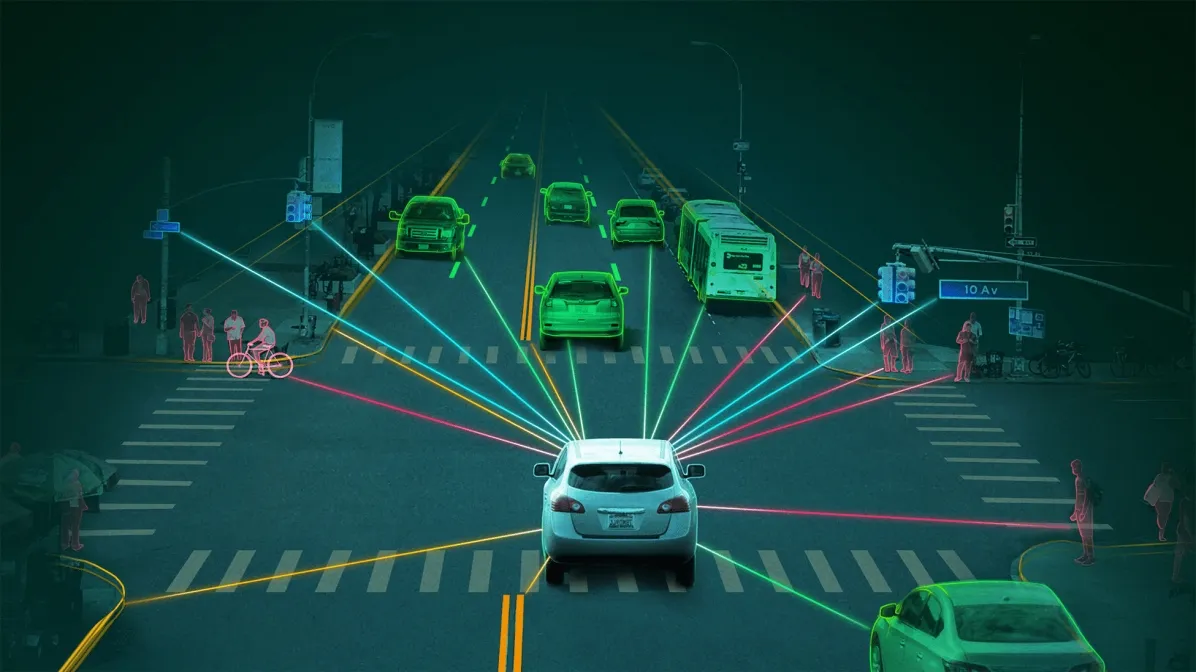February 25, 2025

The advent of autonomous vehicles promises to revolutionize transportation, offering increased safety, convenience, and efficiency. However, beneath the surface of this technological marvel lies a complex web of ethical considerations that demand careful navigation. From the allocation of responsibility in accidents to the preservation of user privacy, the ethics of autonomous vehicle development extend far beyond engineering prowess. In this article, we delve into the multifaceted ethical landscape surrounding autonomous vehicles, exploring the challenges, dilemmas, and the imperative role of ethical decision-making in shaping the future of transportation.
The Ethical Nexus: Autonomous Vehicle Development
As technology propels us toward a future of self-driving cars, the intersection of innovation, safety, and moral responsibility takes center stage. The very nature of autonomous vehicles, which operate through algorithms and machine learning, raises ethical questions that challenge both developers and society.
The Core Ethical Considerations
- Safety and Liability: Determining who bears responsibility in the event of accidents involving autonomous vehicles is a pressing ethical concern.
- Decision-Making Algorithms: Autonomous vehicles must be programmed to make split-second ethical decisions, such as choosing between protecting occupants or pedestrians.
- Privacy: Autonomous vehicles gather vast amounts of data about passengers' movements and preferences, sparking concerns about data privacy.
- Job Displacement: As autonomous vehicles replace human drivers, ethical considerations arise around the impact on employment in the transportation sector.
- Environmental Impact: Balancing the promise of reduced emissions with potential unintended consequences is an ethical challenge.
Advantages of Ethical Considerations in Autonomous Vehicle Development
- Public Trust: Ethical decision-making fosters public trust, essential for the successful adoption of autonomous vehicles.
- Safety Enhancement: Ensuring ethical algorithmic decision-making can lead to safer road environments for all users.
- Privacy Preservation: Addressing privacy concerns safeguards user data, promoting ethical behavior in autonomous systems.
- Societal Integration: Ethical development ensures that autonomous vehicles seamlessly integrate with existing societal norms.
Safety and Liability: The Moral Quandary
- The Trolley Problem: Autonomous vehicles face scenarios where they must make life-and-death decisions. Balancing the moral outcomes in such cases poses a significant challenge.
- The Responsibility Spectrum: Determining the party responsible—be it the vehicle manufacturer, software developer, or human occupant—in case of accidents is a complex issue.
Privacy in the Age of Data Collection
- Data Collection: Autonomous vehicles gather extensive data about occupants, their locations, and behaviors. Striking a balance between data collection and user privacy is crucial.
- Anonymization and Data Security: Protecting data through anonymization and robust cybersecurity measures ensures that privacy is maintained.
Job Displacement and Ethical Dilemmas
- Impact on Drivers: The transition to autonomous vehicles could lead to job displacement among human drivers, necessitating ethical strategies to mitigate negative consequences.
- Responsibility to Workers: Ethical considerations require addressing the welfare of drivers whose jobs are at risk.
Environmental Impact and Sustainability
- Promised Emissions Reduction: Autonomous vehicles are touted as reducing emissions, but they may also lead to increased vehicle usage, offsetting emission benefits.
- Sustainable Solutions: Ethical development involves balancing the environmental benefits of autonomous vehicles with their potential drawbacks.
Transparency and Accountability
- Algorithmic Transparency: Ensuring that the decision-making algorithms of autonomous vehicles are transparent is vital for accountability.
- Liability and Regulation: Legal frameworks and regulations must be established to hold manufacturers and developers accountable for ethical considerations.
Ethics in Practice: Guiding Principles
- Prioritizing Human Safety: Ensuring the safety of all road users must be the primary ethical principle.
- Transparency: Developers must be transparent about how autonomous systems make decisions, fostering public trust.
- Privacy by Design: Designing systems with privacy in mind, minimizing data collection, and ensuring consent are ethical practices.
- Collaboration and Education: Ethical development requires collaboration among stakeholders and educating the public about the technology's capabilities and limitations.
The voyage toward autonomous vehicles is not merely a technological endeavor; it is a moral expedition that requires us to confront challenging ethical questions. As engineers and innovators steer the course of autonomous vehicle development, the ethical considerations that underpin this journey become increasingly vital. The decisions made today will ripple through our society, shaping the way we navigate roads, interact with technology, and safeguard our values. By embracing ethical principles, fostering transparency, and prioritizing human safety, we can ensure that the road ahead is not only paved with technological innovation but also guided by a commitment to the greater good. As we stand at the crossroads of technology and morality, our ethical choices will determine whether autonomous vehicles become a beacon of progress, safety, and convenience or a source of ethical dilemmas and unintended consequences.


